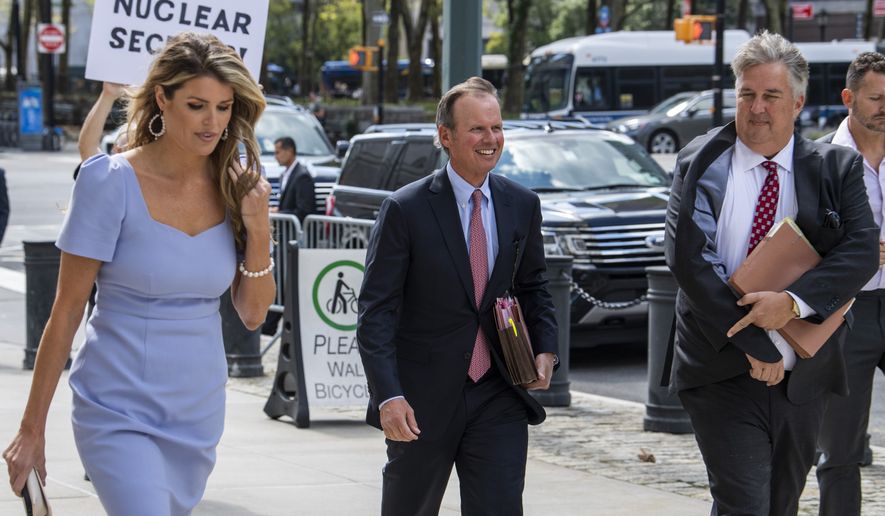Former President Donald Trump’s legal team on Tuesday repeatedly refused to answer questions about the declassification status of documents the FBI seized last month, saying that they didn’t want to reveal a potential defense if he’s indicted.
In their most aggressive legal blitz yet, Mr. Trump’s team coyly hinted that he may have declassified the sensitive documents, but they stopped short of asserting the materials are declassified.
They also insisted they don’t need to disclose if the documents were declassified, arguing that the burden is on the Justice Department to prove the documents, some of which carry markings indicating the highest levels of government secrecy, are still classified.
However, Mr. Trump’s lawyers have not offered any evidence that the status of the materials was changed, instead insisting a president has absolute authority to declassify information.
Those arguments frustrated the veteran judge named last week as a special master to review the 11,000 documents taken during the FBI’s Aug. 8 raid of Mr. Trump’s residence and office at his private Mar-a-Lago club in Palm Beach, Florida.
U.S. District Judge Raymond Dearie, the special master, accused Mr. Trump’s lawyers of wanting it both ways. They want him to take their word that the documents have been declassified, but not trust the Justice Department’s assertions that they are not.
“My view is you can’t have your cake and eat it, too,” he told Mr. Trump’s lawyers during a preliminary hearing in a Brooklyn federal court.
Judge Dearie expressed sharp skepticism of Trump’s legal team, repeatedly pushing them to back up their claims that the sensitive documents have been declassified.
Trump lawyer Jim Trusty stood by his position that it is “premature” to detail what may have been declassified and when.
“We are not in a position nor should we be in a position at this juncture to fully disclose a substantial defense,” he told the court.
Julie Edelstein, a Justice Department lawyer, raised concerns that some members of Mr. Trump’s legal team don’t have the necessary clearances to review the sensitive materials. She underscored the point by emphasizing that some prosecutors involved in the case also don’t have the security clearances, drawing a sharp rebuke from Mr. Trusty.
“It’s kind of astounding to hear the government say the president’s lawyers don’t have a need to know,” he said.
Ahead of the hearing, Mr. Trump’s team outlined their objections to disclosing details about the documents’ classification status to Judge Dearie and the Justice Department.
In a four-page letter to Judge Dearie, Mr. Trump’s lawyers said they should not have to disclose the declassification status unless there is a potential indictment.
“The special master process will have forced the Plaintiff to fully and specifically disclose a defense to the merits of any subsequent indictment without such a requirement being evident in the District Court’s order,” they wrote.
That argument was repeated Tuesday in a separate filing in the 11th Court of Appeals, as Mr. Trump’s lawyers sought to cast doubt on the Justice Department’s assertions that the documents were classified.
“The government again presupposes that the documents it claims are classified are, in fact, classified and their segregation is inviolable. However, the government has not yet proven this critical fact,” the filing said, urging the court to consider the materials’ status as ambiguous.
Mr. Trump’s lawyers asked the appeals court to keep in place a temporary hold that bars the Justice Department from using the seized materials as part of their criminal investigation into the former president.
U.S. Judge Aileen Cannon ordered the pause last week to give Judge Dearie time to conduct his review of the seized materials. Judge Dearie has until Nov. 30 to complete the task.
The Justice Department has said the delay is unacceptable and asked the 11th Circuit to lift Judge Cannon’s hold. The DOJ said the investigation must continue while the special master does his job.
In response, Mr. Trump’s team said the hold was a “sensible preliminary step toward restoring order from chaos.”
• Jeff Mordock can be reached at jmordock@washingtontimes.com.




Please read our comment policy before commenting.